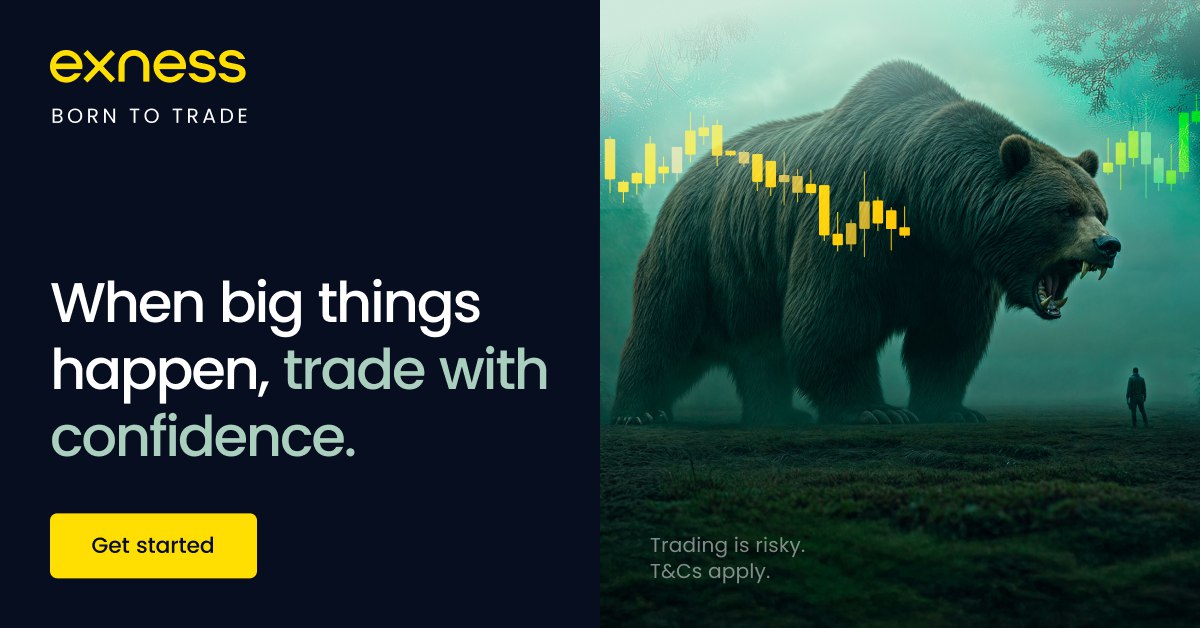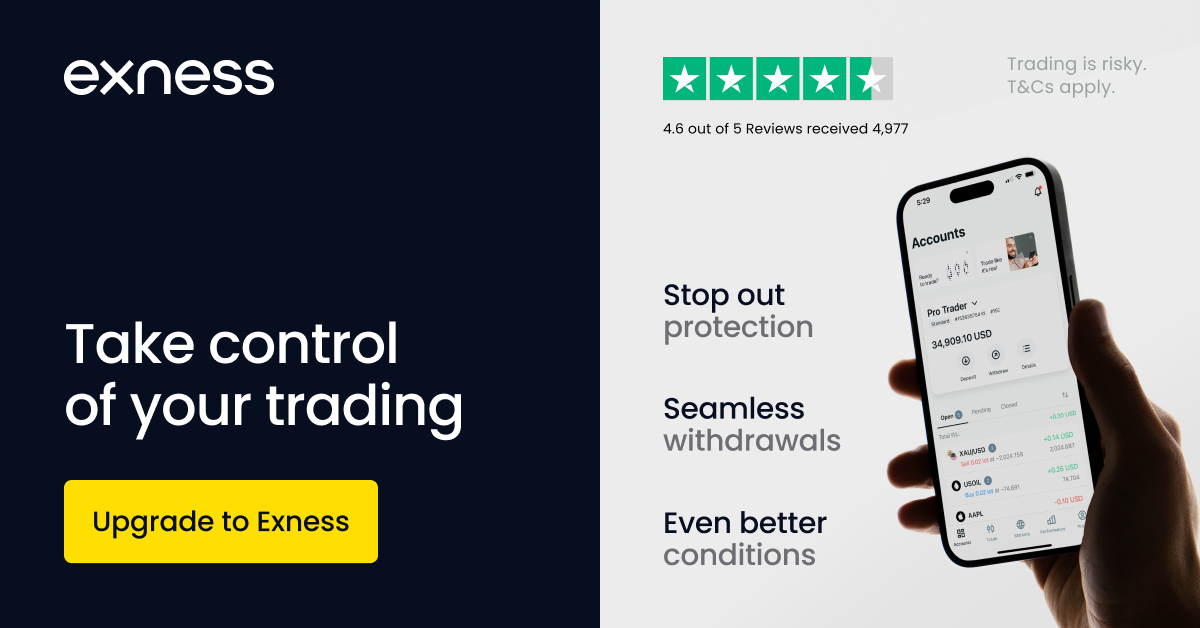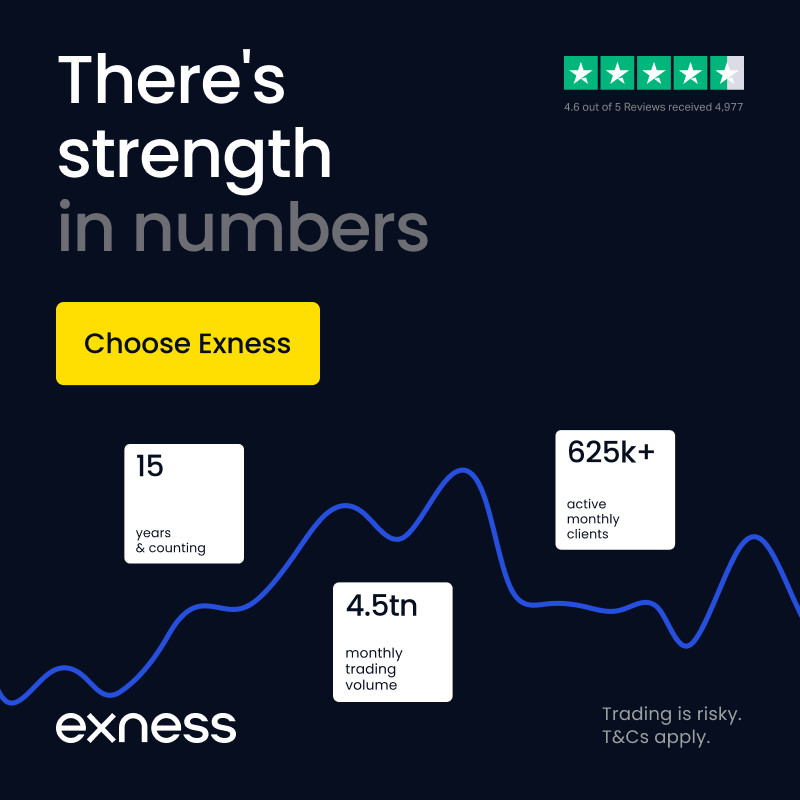
4 minute read
Exness Spread Explained: Fixed vs Variable – What Traders Need to Know
One of the most important elements of forex trading is understanding how spread types work. In Exness, traders can choose between fixed spreads and variable (floating) spreads, depending on their trading style and risk tolerance.
So what’s the difference? And how do you know which one is right for you?
In this article, we’ll break down Exness spread types, highlight their pros and cons, and show you how to use them effectively.
👉 Open your Exness account and explore real-time spreads now

1. What Is Spread in Exness?
Spread is the difference between the bid (sell) price and the ask (buy) price of an asset. This is the primary trading cost in forex, especially in commission-free accounts.
A tight spread means lower trading costs.
A wider spread increases the cost to open and close trades.
Spreads vary depending on the account type, market liquidity, volatility, and time of day.
2. What Is a Fixed Spread in Exness?
A fixed spread remains constant regardless of market conditions. Even during news releases or low liquidity periods, the spread stays the same.
✅ Advantages:
Predictable cost per trade
Easier risk management
Useful for trading during volatile news events
❌ Disadvantages:
Slightly wider than variable spreads during normal conditions
Not suitable for ultra-tight scalping
📌 Available On:
Standard Cent account
👉 Sign up now and access fixed spreads via Standard Cent account

3. What Is a Variable Spread in Exness?
A variable (floating) spread changes dynamically based on market conditions.
During high liquidity, spreads tighten (often under 1 pip).
During low liquidity or volatile events, spreads widen to manage risk.
✅ Advantages:
Lower average cost during normal trading conditions
Ideal for scalpers, day traders, and high-frequency strategies
More competitive pricing on major pairs like EUR/USD, USD/JPY
❌ Disadvantages:
Can widen suddenly during news or gaps
Requires more careful planning around events
📌 Available On:
Standard, Pro, Raw Spread, and Zero accounts
4. Fixed vs Variable Spread: Side-by-Side Comparison
FeatureFixed SpreadVariable SpreadStabilityAlways constantFluctuates with market conditionsCost predictabilityHighMedium to LowTypical spread range1.5 – 3.0 pips0.0 – 1.5 pips (can widen in events)Best forBeginners, news tradingScalping, swing, and active tradersAccount typeStandard CentStandard, Pro, Raw Spread, Zero
5. When Should You Use Fixed Spreads?
You trade around news releases
You want stable costs with no surprises
You prefer long-term or small-volume trades
This setup is beginner-friendly and allows you to manage risk more easily.

6. When Should You Use Variable Spreads?
You trade actively or scalp intraday
You want to benefit from tight pricing during liquid sessions
You’re experienced in managing execution during volatility
This is ideal for traders who need flexibility and aim for lower trading costs on average.
7. Tips for Managing Spread Costs in Exness
Trade major pairs like EUR/USD, USD/JPY for lowest spreads
Use Raw Spread or Zero accounts if you want minimal spread and don’t mind commission
Avoid trading during news spikes if you’re using variable spread
Monitor spread levels using MetaTrader 4/5 or Exness Terminal
👉 Choose your Exness account and test both spread types today
8. FAQs: Fixed vs Variable Spread in Exness
Q1: Can I switch between fixed and variable spread accounts?
Yes. You can open multiple account types in your Exness Personal Area.
Q2: Which spread type is cheaper?
Variable spreads are cheaper in normal market conditions, but fixed spreads can protect you during volatility.
Q3: Are spreads the same for all instruments?
No. Exotic pairs and metals often have higher spreads than major currency pairs.
Q4: Is the Raw Spread account considered fixed or variable?
It uses variable spreads, but starting from 0.0 pips, with a commission per trade.
Conclusion: Choose the Right Spread for Your Strategy
Whether you choose fixed or variable spreads in Exness, the key is to align your selection with your trading style. Fixed spreads are great for risk control and predictability. Variable spreads offer flexibility and lower costs for active traders.
👉 Open your Exness account now to try fixed and variable spread accounts
See more:
Exness Trading Schedule During Major Market Events
Exness Trading Schedule vs Other Brokers: Key Differences

